W4 had the honor of interviewing Delbar, the founder of Nirouye Tadbir Zanan – “The Power of Management and Knowledge of Women.” A champion of women’s rights, Delbar understands the hidden, psychological world behind women’s empowerment and works to help marginalized women around the world to achieve self-esteem and the confidence they need to gain skills and enter into entrepreneurship.
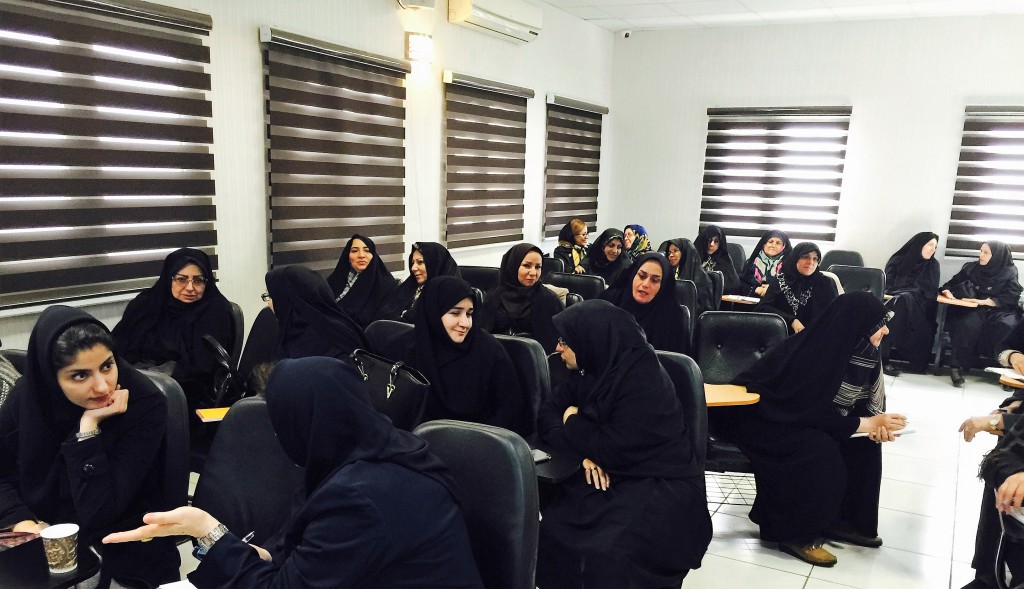
Why do you consider women’s empowerment to be so important, particularly in Iran?
More than half of the Iranian population is female, so women are an essential potential resource in our society. In both the private sector and government, we need to be aware that the return on investment in women will be beneficial for everyone, male and female. In Iran’s growing economy, women have an opportunity to show their talent: to improve their skills and to let the world know, “These are our capabilities, these are our talents, this is what we can do.” It will be good for the women, good for their families, and good for the country.
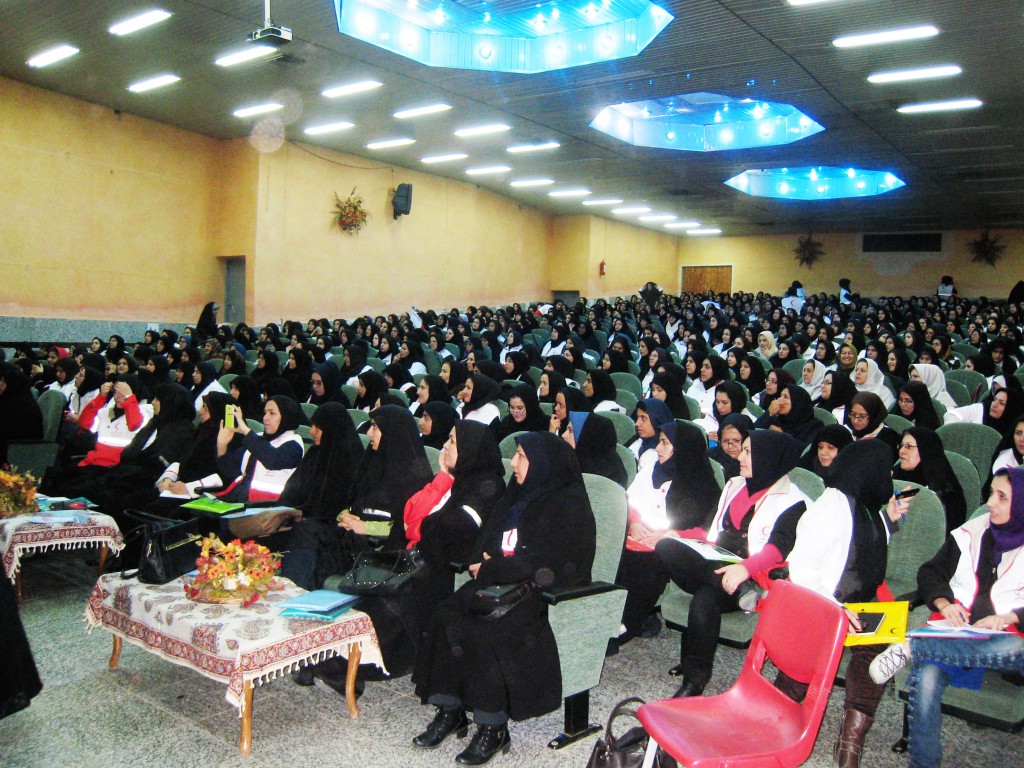
What are some of the greatest challenges you’ve faced? How have you overcome them?
The first challenge is always funding. We have to make large companies understand that investing in women’s growth is actually investing in a family, which is a top priority. When you support women, you’re supporting your country’s social health.
The other challenge is that often women themselves don’t believe that they’re worth investing in. Because they’re stuck in their understanding of their true value and they don’t realize their talents. Our women are so immersed in the demands of their daily lives that they don’t realize their abilities to make change in their own lives and also in others’. We have had many workshops, and we’ve come a long way. It continues to be time-consuming, but that’s okay because we understand this kind of attitude – and we need to change the mentality of women before anything else.
In the face of all the challenges, however, we’ve found that the government is very open to our kind of empowerment education and they are really supportive; that’s an enormous advantage.
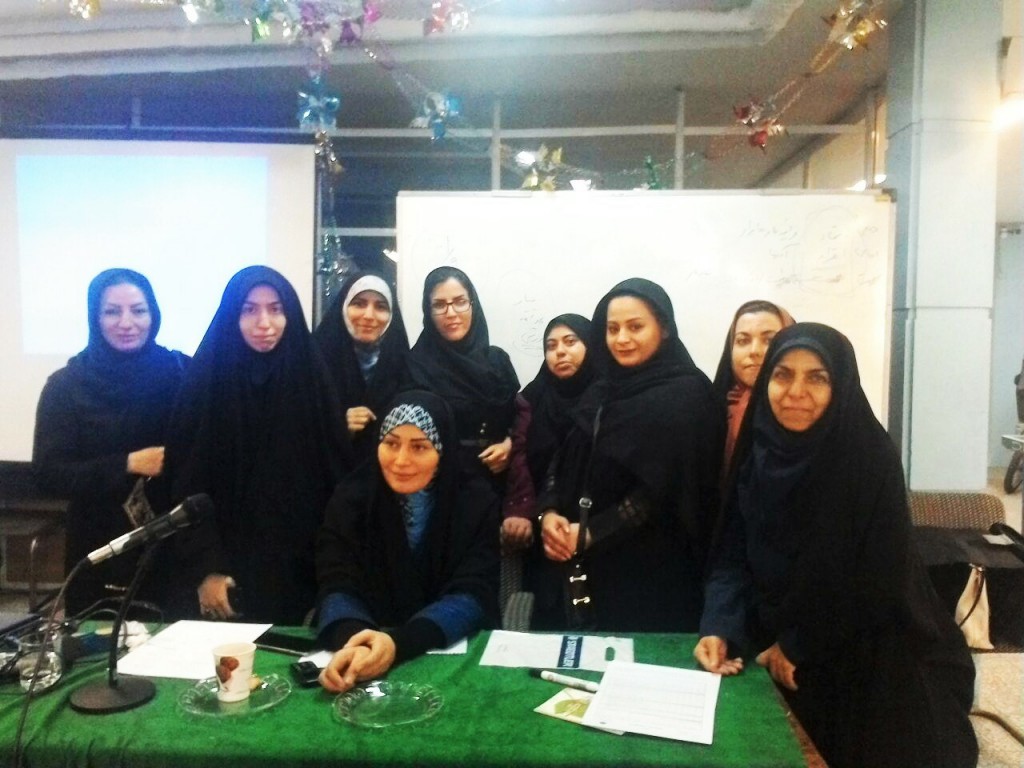
What part of your work is most important?
It’s most important to convince women that they are valuable. Naturally, if a person doesn’t feel she is worthwhile, then investing time and money into her growth isn’t going to make a lasting change. We want the empowerment and education experiences we offer to be practical and useful, to equip women with skills that will stay with them throughout their lives. To do this we have to change the women’s mindsets, their behavioral attitudes about independence, about self-worth, about money and empowerment. These women tend to assume that entrepreneurship is about putting them into a workplace, giving them a job. But that is simply being integrated into a workplace. Entrepreneurship is when you create something of your own, when you have control.
I strongly understand that you need to first work on the soft skills, self-mastery and interpersonal skills, and then take on the practical skills because I’ve been through the same process myself. When I was younger, I used to have very low self-esteem, very little self-confidence. For example, I would never have thought I could teach English as a second language. I believed, “That’s not me. I don’t have enough knowledge, I’m not university educated. Who is going to trust me? Who is going to take me seriously?” But by gaining a little knowledge about myself I was able to push through these doubts and to feel worthy. I started by asking, “How am I doing? In what ways can I be professional with the knowledge that I have? Where to start? What are my needs? What are my values?” I had to see myself first as a human being, rather than as a woman, discovering my talents and what skills I have. Then comes the question, “Now, what do you want to do with your self-knowledge? How can you act on it?”
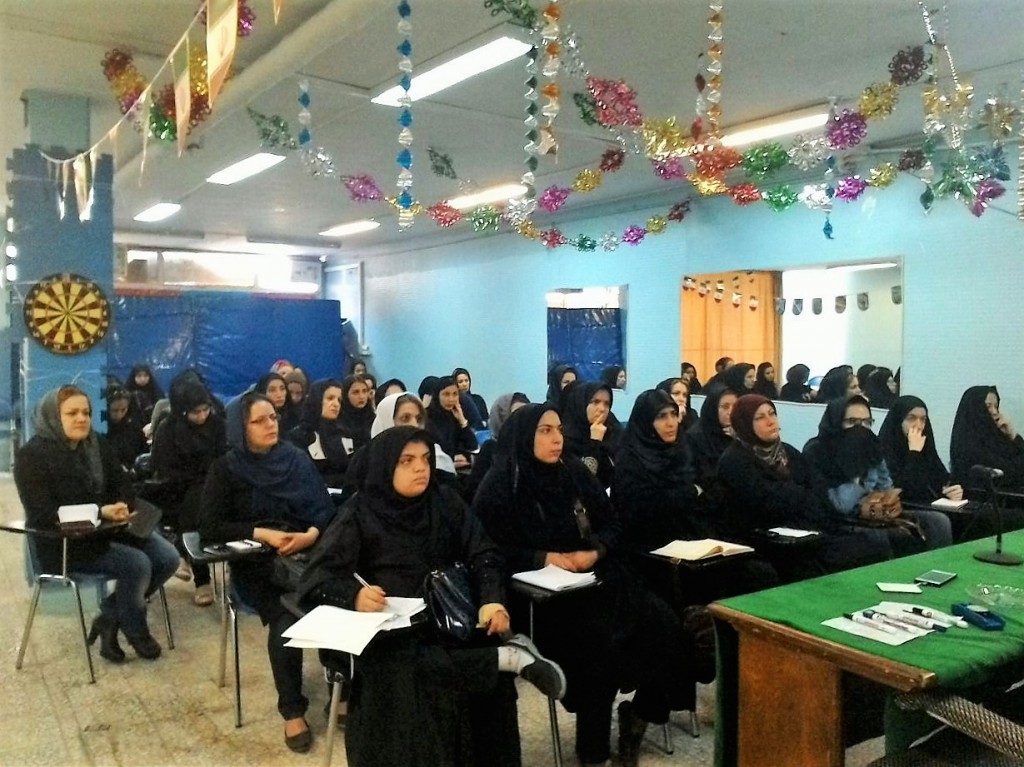
So, teaching these self-mastery skills – changing the mindset of Iranian women – presents a greater challenge than the actual hands-on, vocational skills?
Yes! For example, one organization asked us to simply teach women the practical skills, like IT skills, to help women to gain the certification, then leave the rest up to the women themselves. But, think about it: if these women knew what do after receiving their certificate, they would have done it a long time ago. Honestly, I feel a bit lost sometimes: because of the history of our country, women don’t have top priority in anything. Over the past ten years things have been changing gradually, but it’s still part of the culture to hear women saying, “I don’t deserve this.” We need to change that mentality. Women need to know about themselves, to have a sense of self-value. After that they become hungry for knowledge, eager to learn to be practical and useful in their society. I believe that this can also make them better moms and loving wives. Family is our core value in this project: when we plan to empower our women we don’t look at them as individuals but as members of families. We see that if they change, the whole family will grow, we will have a healthier society and, of course, these women can be trained so that we have more effective managers in our future.
But imagine trying to change the behavior of someone who has been told for 30 or 40 years that she is worthless. It’s challenging for us as trainers and professionals, and for the participants – mainly because it’s hard for them to trust their inner abilities, but also because they don’t necessarily trust us at first. This is why we have social facilitators, people who are experts in getting the women to trust themselves and then to trust us, to allow us to teach them efficiently.
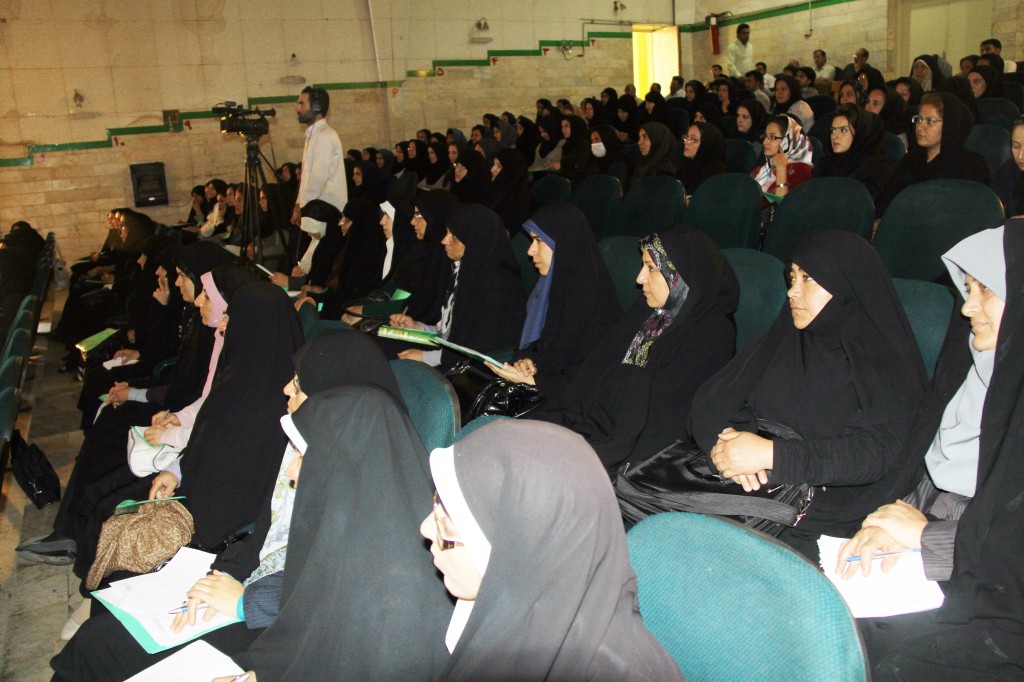
What are some of your goals for yourself and your work?
I have a vision of establishing a branch of our NGO in each city of Iran. We’ve created a campaign called “Family-Friendly City” in four cities in Iran. A city is a “Family-Friendly City” if its citizens acknowledge the roles of women, if they recognize the social capital of women – their value within their families and in the workplace. I want to expand this campaign to help to empower as many women as possible across the 32 cities of Iran.
Globally, I would like to bring our approach to more countries around the world, places where they never thought it possible to have this mentality of women’s empowerment and entrepreneurship and to help facilitate more practical solutions when it comes to women and economics. Sometimes when we talk about women’s empowerment people think we are only talking about women’s self-respect, but we go beyond that. We are planning to train women as future leaders and ambassadors in their professions to make the world a better place for everyone.
Women in Tech and your IT training program — what does this mean to you? Why do you believe it to be so necessary?
“Necessary” — exactly! Iran is a high-technology country. We have very smart people in IT and IT is growing so vastly, spreading across our culture, into our homes. Even in villages they have telephones with android systems. Using technology we can create jobs and opportunities for women to become more independent and to make money out of it for a somewhat easier life style.
Of course, there are many unhealthy things going on with social media, but we want to make the best of it and turn threats into opportunities. Our research shows us that when it comes to IT, even a little knowledge can have a huge impact for our women.
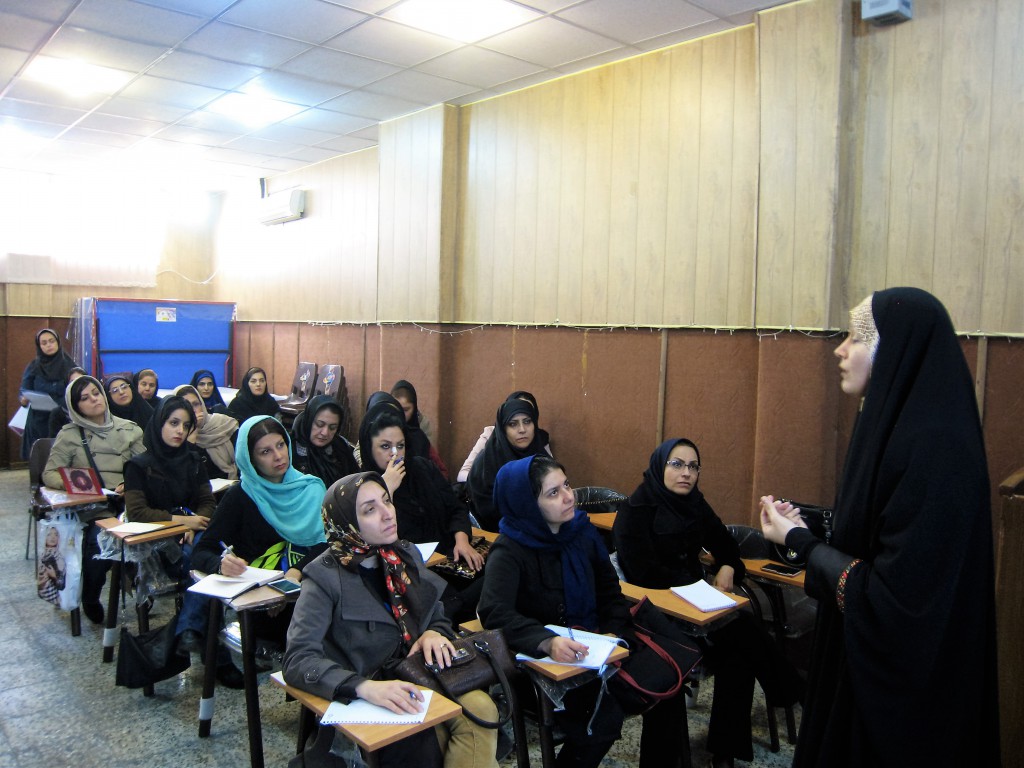
How can individuals, organizations and/or businesses support your work?
The simplest thing is to help fund our work online, to help women in Iran.
Another way to help is to fund our program as an investor. You can have a program like ours in your native country and by being an investor you can experience ownership of the project. Of course, depending on the arrangement, we take some percentage of that funding back home to help our women in Iran. But each project has to be relevant for investors, in their own countries and cities.
Outside of Iran, it works too. In England I asked people, “What are your struggles? What are your strengths?” We came up with a program that helped local NGOs tackle big issues and when we appealed for funding in the UK, the police department gave 50% of the money needed. Why did they give so much? Because we were reinvesting money in the growth and well being of their communities. They didn’t care that we were Iranian – as long as the good work was happening in their city and it was their people who were benefiting. I realized that many countries would enjoy having work done in their own cities. People will invest when it’s their sons and daughters who are benefiting and we are happy to share our best experiences and help others to experience the benefits we have experienced.
The second way to help is to install our Trainer-to-Trainer program, which works by training local trainers, so it doesn’t all depend on me coming from Iran. This is also part of Corporate Social Responsibility (CSR), and investing in women is a way to see a return on your investment. But companies need to connect to the project; it must be relevant to them.
Third, we can offer workshops to women in organizations and companies around the world, as I mentioned earlier, especially within human resource development. For example, a company might say, we will invest in this program for the women working in our company and also for the wives of our employees. We are happy to do that because we want to make a difference for all women, whether they are general citizens, employees of a company, or wives of CEOs. One of the biggest problems in the workplace is women’s struggle to balance home life and work. I’ve given talks in China, the United States, etc. I teach them the model, offer them training and coaching, and then let them take control, so they are not dependent on us.













